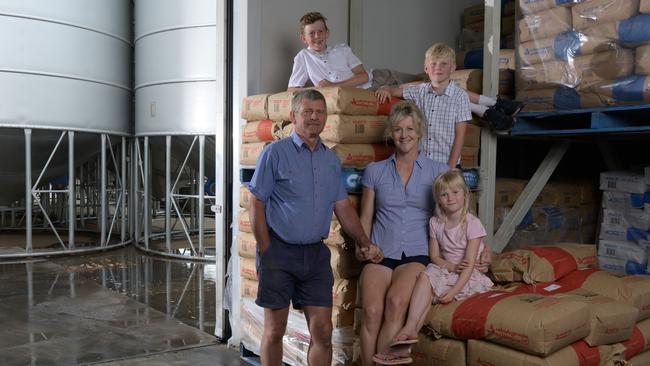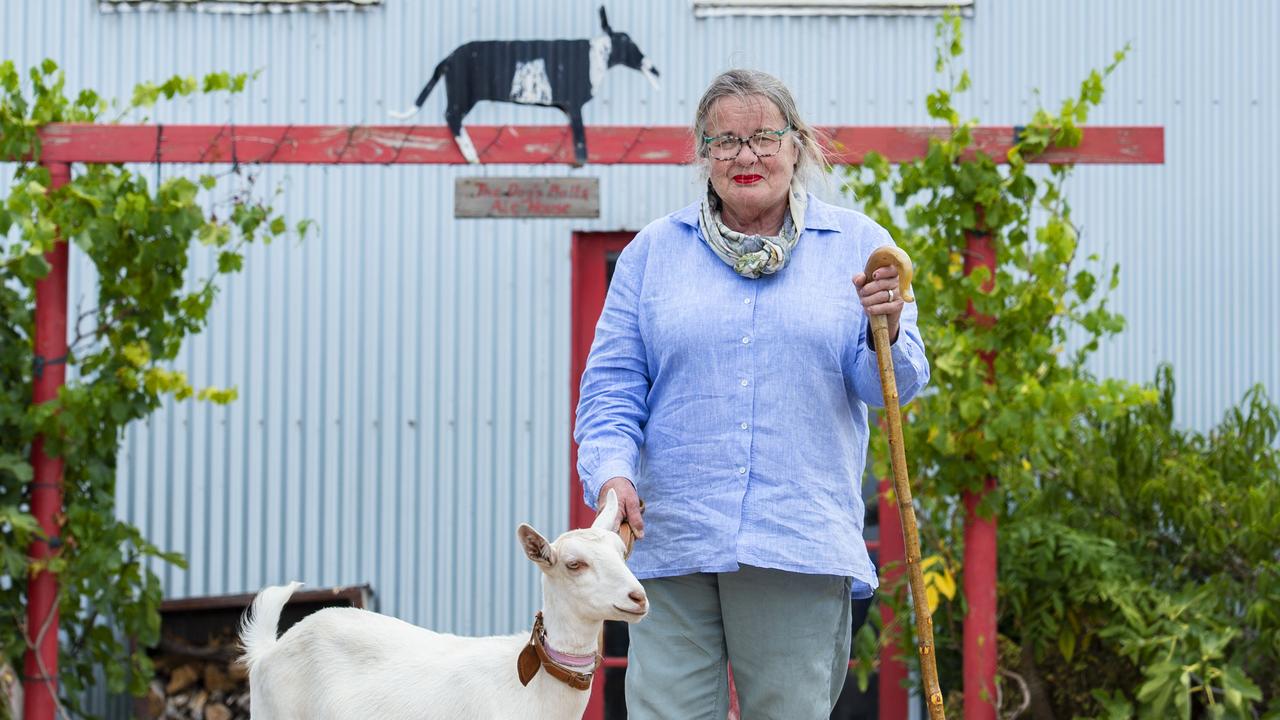Wholegrain Milling Co’s focus on organic, sustainable grain for flour
They were ahead of their time, now NSW miller Craig Neale’s family is reaping the benefits of focusing on organic stonemilled flour for more than 40 years.

IT HAS been a slow rise to fast success for grain farmer Craig Neale’s family flour milling business.
Starting in the late ’70s with a small mill on the kitchen table, in a bid to solve family health problems, Wholegrain Milling Co now sources organic, sustainable grain from 60 farmers from Victoria to Queensland.
Up to 20,000 tonnes of flour a year, from 20 different heritage, ancient and modern grain varieties, is either stone or roller milled, with 35 products sought after by artisan sourdough makers right through to export markets in southeast Asia.
“We now look like we’re an overnight success, but it’s 43 years in the making,” Craig says.
“For many years we were too early for our time and the consumer wasn’t ready for organic stonemilled flour. The turning point for us really came in the early 2000s.
“My parents were so determined, especially mum, to create a better, chemical-free, healthier food system. She knew there were a lot of people like her who suffered illness because of chemicals.”
So dedicated is the Neale family to wholesome bread that Craig’s wife, Renee, has a microbakery producing 125 sourdough loaves from her online shop Reverence Sourdough, supplying in a 150km radius from the bakery. The couple and their three children live in Gunnedah, northeastern NSW, near the mill, but also have a stake in the family’s 810ha grain and cattle farm four hours west, near Walgett.
In good years, the farm produces grain for the milling company. “But we haven’t grown anything for five years on the property because of dry conditions,” 58-year-old Craig says.
“We will never be able to feed the world on organic because we just can’t grow enough, it’s our limiting factor. And with climate change we’re experiencing more and more challenging conditions.”
Craig says about a decade ago the company trialled about 200 historic and ancient grains, narrowing the field to 20 including Khorasan, spelt and rye, able to grow in varying climates and regions.
One of the major limitations for organic growers is the need to cultivate soil to eradicate weeds — compared to no till from conventional growers — with soil disturbance causing more moisture loss.
In addition, organic seed is often lower yielding and with a higher risk of disease. “Organic growers, though, get three to five times the premium compared to conventional.”
Given the limitations around organic, seven years ago Wholegrain Milling Co created its own farming system, ASP (Australian Sustainable Products). Farmers are allowed to use limited synthetic inputs as long as the end product is chemical free to a non-detectable level. That flour is sold under the company’s ‘sustainable’ brand.
“We did it to drought proof ourselves. Agronomists now work under this system with our farmers to give guidance and practices.”
With harvest running from September in Queensland, and to January in Hamilton, grain is transported to Gunnedah and stored in seven silos.
It is either milled in their modern roller, which produces a smoother flour at greater volumes, or their stone mill, with Craig initially custom designing stone mills, before buying imported ones. This system produces a more nutritious flour that still contains wheatgerm and has more flavour.
Craig says it was this health focus that first resulted in his parents, Wendy and Harry, milling their own grain from the family’s Gunnedah farm in the 1970s.
“Mum suffered a lot of food allergies and she worked hard to try and find a solution. Every time we’d spray the crop she’d get ill, in bed with massive migraines.
“Slowly, over time, by converting her diet, moving to chemical-free farming, her health improved.”
From that small kitchen mill, the Neale family sold the farm and moved to a larger mill in the 1980s, which was the first of its kind to be certified organic through NASAA.
For two decades Craig and his parents ran the business, but with slow uptake by consumers, he was forced in the early years to shear to supplement his income.
The past three years have seen the greatest growth in the company — last year alone it grew 20 per cent.
Craig sees continued growth in years to come, highlighted by the increasing number of artisan bakers now planting their own grain and milling flour.
And he predicts new products will add to demand, including a trial in plant-based protein flour.
“Through it all, I have believed in the benefits of organic, chemical-free grain.
“We always had a vision that we could change the market place.”
MORE


